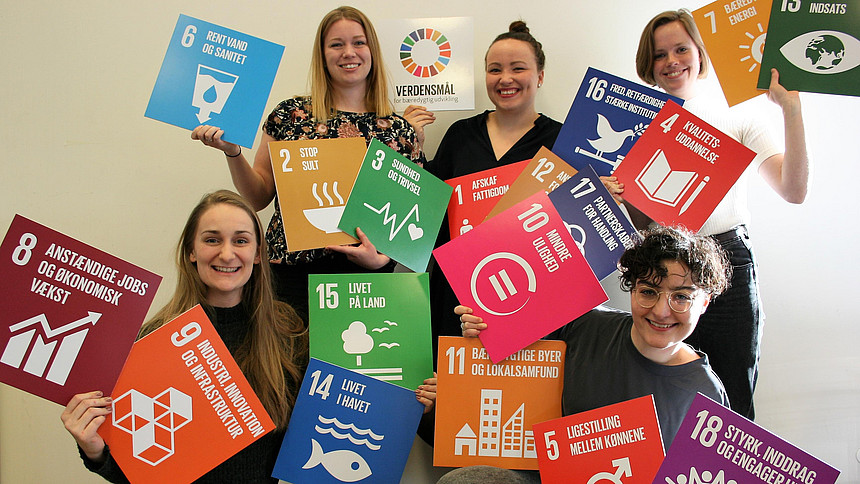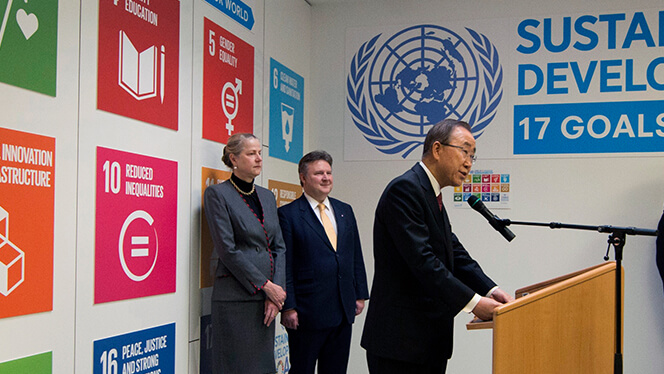The 17 Sustainable Development Goals (SDGs) are the most ambitious plan for a better future that humanity has yet devised: At the United Nations General Assembly in September 2015, 193 countries agreed on 17 goals and 169 sub-goals. The 2030 Agenda is named after the fact that the goals must be met by 2030. The SDGs provide global advice for tackling the international community’s global concerns. It is about preserving people’s opportunities to live in dignity and prosperity across generations by better conserving the natural underpinnings of life and our planet everywhere and for everyone. The 17 goals are divided into three categories: ecological, economic, and social.
Who are the sustainable development goals for?
Everyone is affected by the Sustainable Development Goals (SDGs), including policymakers, civic society, industry, academics, and individuals. At the political level, they provide a framework for policymakers to take action, and government delegations report to the United Nations High-Level Political Forum on the progress of each target once a year. But, in addition to the governmental sector, the private sector and businesses must be active in accomplishing the SDGs.
The SDGs are explained for businesses

The SDGs Explained for Business
The existing business climate is characterised by an unusual, fast-paced, and complicated mix of dangers and opportunities. Innumerable causes, like new technology or a sudden shortage of natural resources, can disrupt your entire industry in a short period. Megatrends such as population expansion, resource scarcity, and global health threats are causing new markets to emerge quickly. Meanwhile, consumers and investors are more aware than ever before, and they expect corporations to take responsibility for the strains that our world and its people face. There is a growing recognition – particularly among forward-thinking business executives and investors – that it is insufficient for corporations to focus just on short-term profits because natural disasters, social upheaval, and economic disparity can jeopardise long-term prosperity. Businesses that recognise the problem and take action will be ahead of the game.
The SDGs have made it into the mainstream of corporate reporting: 72% of global corporations now mention the targets in their annual corporate or sustainability report, and 50% of companies have chosen priority SDGs. SDG #8: Decent Work and Economic Growth, SDG #13: Climate Action, and SDG #12: Responsible Consumption and Production are the top three SDGs mentioned in company reports. As businesses become more open about leading by example, momentum will grow, and our chances of achieving the 17 SDGs by 2030 will rise dramatically.
How can companies and businesses help in achieving SDG goals?
No matter what the size, and regardless of their industry, all businesses can contribute to the SDGs. Despite the extraordinary magnitude and scope of the global goals, the essential methods can remain intact. Businesses are encouraged to participate in the United Nations Global Compact by the UN to do business responsibly and then look for ways to tackle societal problems through business innovation and collaboration. Global concerns, such as climate, water, food crises, poverty, violence, and inequality, all require private-sector answers, creating a significant and increasing market for business innovation. Integrity and values will play a critical role in the race to adapt business models and systems for the future. Companies that want to help advance the SDG agenda must first act responsibly, including the United Nations Global Compact’s Ten Principles into their plans and operations, and knowing that good practices or innovation in one area cannot compensate for harm in another.
Why are SDGs important for businesses?

The Sustainable Development Goals (SDGs) are the cornerstone for ensuring future economic and corporate success by reducing poverty sustainably and inclusively while conserving the environment. It is impossible to succeed in business in a world of rising inequality, poverty, and climate change. So the SDG agenda presents a unique opportunity for businesses to embrace it and recognise it as a driver of corporate strategy, innovation, and investment decisions. It makes business sense for them to do so, and it will offer them an advantage over their competitors.
The SDGs represent a once-in-a-lifetime economic opportunity. The potential value that may be released for society with an estimated investment of $2-3 trillion per year is enormous. It is projected to be worth hundreds of billions of dollars in some industries and even more in others. Our is a very high return on investment for this global agenda, and markets are already reacting. We’ve seen this with climate action, which impacts 13 of the 17 SDGs, with businesses that actively consider this problem reaping 18% higher returns on investment.
Conclusion
The SDGs clearly define where we need to be in 2030 to establish a sustainable world and new markets and possibilities for businesses around the world. But, to be successful, we must translate global objectives into local business. The United Nations Global Compact is committed to becoming a driving force behind that transformation. Based on the United Nations Global Compact’s sound values and principles, we will devote our resources and worldwide network to making it happen.

